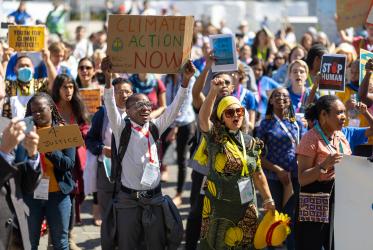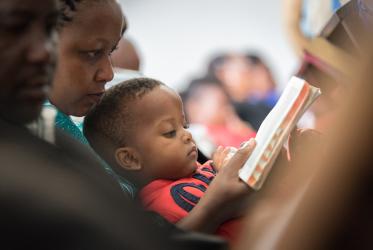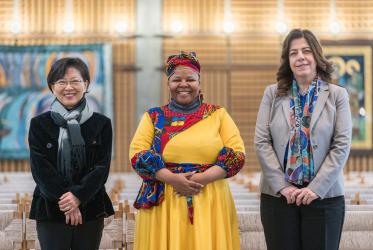Among the pivotal moments shaping this movement, the year 2023 stands out as a turning point, marked by landmark court rulings and legal victories. One such milestone was Judge Kathy Seeley's groundbreaking decision in Held v. State of Montana, where she ruled in favor of 16 young plaintiffs. This historic verdict not only set a precedent for climate-related lawsuits worldwide but also affirmed the constitutional rights of the plaintiffs to a clean and healthy environment.
Building upon these legal triumphs and acknowledging the pressing need for action, the Centre for Climate Law & Governance at King’s College London convened a Legal Roundtable on 5 April. The event brought together leading academics, legal experts, psychology experts, and representatives from third-sector organizations to explore innovative strategies for advancing children’s rights through litigation amidst the challenges posed by climate change. Co-convened by Prof. Megan Bowman (The Dickson Poon School of Law) and Dr Jenny Driscoll (School of Education, Communication & Society) of King’s College London, alongside collaborators from Generations Together, Our Children’s Trust, and the World Council of Churches (WCC), the roundtable was funded by a King’s Climate & Sustainability Seed Grant that aimed to foster interdisciplinary dialogue and collaboration.
Central to the discussions was the recognition of children's disproportionate vulnerability to the impacts of climate change. Scientific evidence from the Intergovernmental Panel on Climate Change has supported UNICEF's assertion that young people are particularly susceptible to the social and physical effects of environmental degradation. Projections indicating a potentially uninhabitable world with a 3.0°C warming by the end of the century underscored the urgency of addressing these challenges.
"Climate change has changed the rules. So we need to change the way we deal with it. Using the law is the last resort to give hope to children for a liveable future," said Frederique Seidel, WCC programme executive for Child Rights. Seidel emphasized the imperative of adults protecting children, stating that those who utilize the law to safeguard children from the accelerating damages caused by the climate emergency are a source of hope.
The roundtable focused on reviewing key court actions from 2023, exploring creative legal approaches for children's justice, and identifying promising avenues for litigation. It underscored the importance of intergenerational justice and the role of children in advocating for the rights of future generations. The event aimed to establish a coordinated approach to climate-related litigation.
The Legal Roundtable at King's College London sought to cultivate a global community of experts in international law, children's rights, and sustainability, fostering collaboration and coordination in the pursuit of climate justice. Plans were set in motion to publish a concise outcome report reflecting the discussions, conclusions, and recommendations, serving as a beacon of hope in the ongoing climate change crisis.
"Climate change has become an adverse childhood experience and can lead to relational trauma between adults and children," shared Seidel.
Seidel elaborated on the WCC’s longstanding commitment to sustainable community development. Since the 1970s, the WCC has been a key player in climate justice movements at grassroots, regional, and global levels. In 2015, the WCC partnered with UNICEF to develop the Churches’ Commitments to Children, focusing on climate justice efforts for children. Additionally, the WCC has spearheaded campaigns on climate-responsible banking, mapped research on the impacts of climate change on children’s physical and psychological wellbeing, and advocated for the recognition of climate destruction as a form of violence against children, in global partnership strategies.
The ongoing WCC project, titled the WCC Inter-Generational Climate Justice Initiative, exemplifies the organization's dedication to fostering sustainable communities. The initiative's comprehensive movement-building strategy includes lawyer training within WCC member churches, litigation support from law firms, collaboration with creative communication companies, and data collection for court cases on how the ongoing financing of fossil fuel expansion affects children’s mental health. Furthermore, the project aims to expand research to ten countries, in collaboration with leading experts in the field of climate and children’s wellbeing.
Through collective action and strategic advocacy, hope remains for a future where the rights of all generations are safeguarded against the perils of CO2 emissions, over 75% of which are caused by fossil fuels.
Climate-Responsible Finance - a Moral Imperative towards Children





